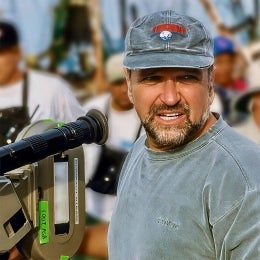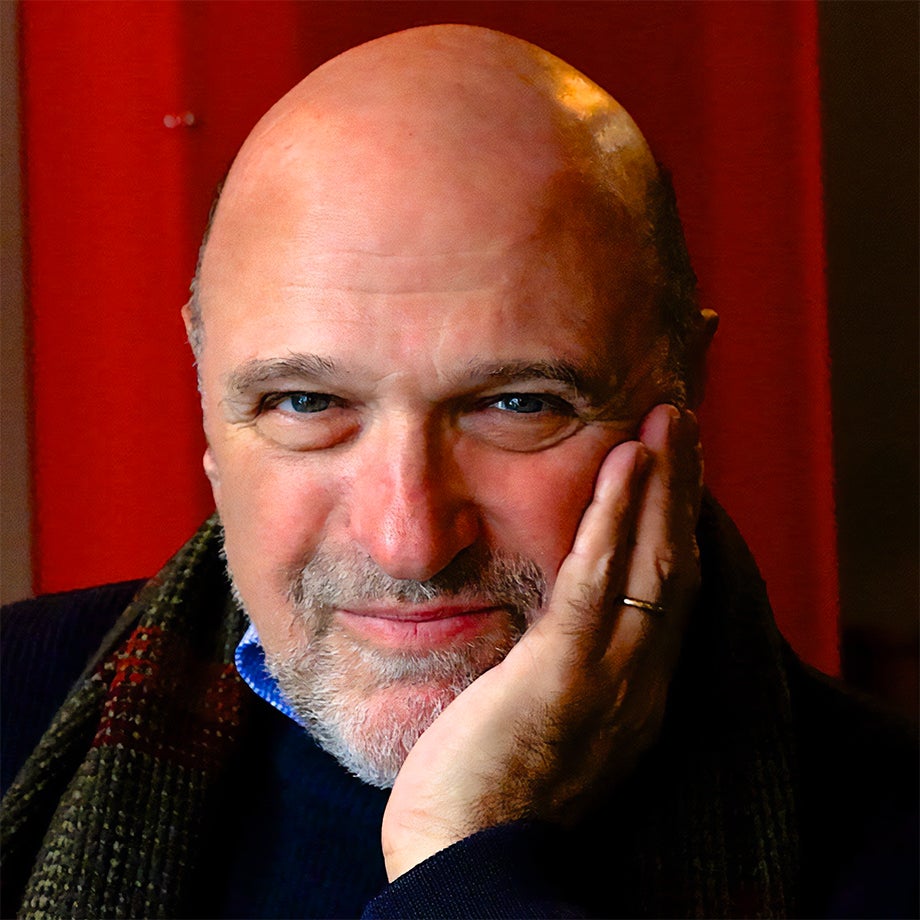
The creative vision behind cinematic landmarks like The Fugitive, Under Siege, and Holes has found a permanent home at UC Santa Barbara. UCSB Library is honored to announce the acquisition of the archives of acclaimed filmmaker Andrew Davis, a major addition to its growing Film & Television Collection that will preserve Davis’s legacy and make it accessible for scholarly research, teaching, and public engagement. The archive provides an unparalleled window into the craft of filmmaking from one of the industry's most respected voices.
Known for his dynamic storytelling and cinematic contributions to American film, Davis’s body of work has left a lasting impact on the industry. Born and raised in Chicago, Davis began his career as a cinematographer before transitioning to directing. His Chicago roots have long informed his work, both in setting and in tone, with many of his films drawing on the city’s grit and energy. His career began with documentaries, commercials and serving as an assistant cameraman on Haskell Wexler classic Medium Cool (1969). Davis’s early documentary work on The Murder of Fred Hampton (1971) and American Revolution 2 (1969) laid the foundation for his signature style: visually grounded, emotionally resonant, and socially aware action and thriller films with gripping narratives and thoughtful character development.
Davis’s 1993 action thriller The Fugitive starring Harrison Ford and Tommy Lee Jones was a critically-acclaimed global box office hit and earned seven 1994 Academy Award nominations, with Jones winning the Award for Best Supporting Actor. Other notable films in his oeuvre include Code of Silence (1985) starring Chuck Norris; The Package (1989) starring Gene Hackman; Under Siege (1992) starring Steven Seagal, Gary Busey, and Jones; the Santa Barbara-filmed comedy Steal Big, Steal Little (1995) starring Andy Garcia; and Holes (2003), an adaptation from Louis Sachar’s bestselling novel starring Sigourney Weaver, Jon Voight, Patricia Arquette, and Shia LaBeouf.
 The first tranche of the multi-phase donation has arrived at the Library. It includes production notes, original film scripts, correspondence, photographs, and other behind-the-scenes documents spanning Davis’s storied career. Highlights include storyboard sketches, editorial notes, and actor correspondence from The Fugitive, as well as extensive materials related to Holes, revealing Davis’s collaborative approach to adapting literature for the screen and working with young actors. Future additions are expected to further expand this rich collection, offering a comprehensive behind-the-scenes look into Davis's professional journey and creative process.
The first tranche of the multi-phase donation has arrived at the Library. It includes production notes, original film scripts, correspondence, photographs, and other behind-the-scenes documents spanning Davis’s storied career. Highlights include storyboard sketches, editorial notes, and actor correspondence from The Fugitive, as well as extensive materials related to Holes, revealing Davis’s collaborative approach to adapting literature for the screen and working with young actors. Future additions are expected to further expand this rich collection, offering a comprehensive behind-the-scenes look into Davis's professional journey and creative process.
"The Andrew Davis Archive represents a treasure trove for film scholars and students," remarked Jennifer Holt, the Chair of UCSB’s Film & Media Studies Department. "We are honored that Mr. Davis entrusted UCSB with preserving his legacy. His work not only exemplifies excellence in filmmaking but also speaks to broader cultural, social, and political themes that resonate deeply today."
On choosing UCSB for his archive, Davis noted: "I wanted my life's work to be part of a community that values both scholarship and storytelling. UCSB has an incredible reputation for preserving film history while also inspiring the next generation of filmmakers and thinkers. I’m excited for students and researchers to explore the layers of these projects—the challenges, the triumphs, and everything in between."
The Andrew Davis Archive will be housed in the Library’s Special Research Collections, where it will be processed and preserved for both physical and digital access. Select items will be digitized over time, making them available to a broader audience and ensuring their longevity. Future exhibitions, lectures, and public programs will be organized around the archive to engage the campus and wider community with Davis’s work and legacy.
"Andrew's impressive archive aligns perfectly with the Library’s mission to support interdisciplinary research and provide access to primary sources that foster new insights into American film history," said Laura Treat Liebhaber, the Curator of the Film & Television Collection. "These materials will not only serve film and media studies scholars but also those in history, sociology, literature, and other disciplines."
Image Credit
Courtesy of Andrew Davis


